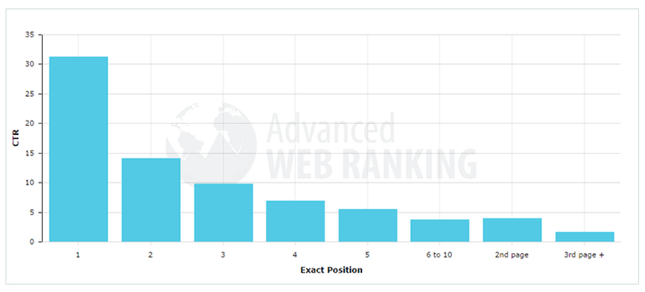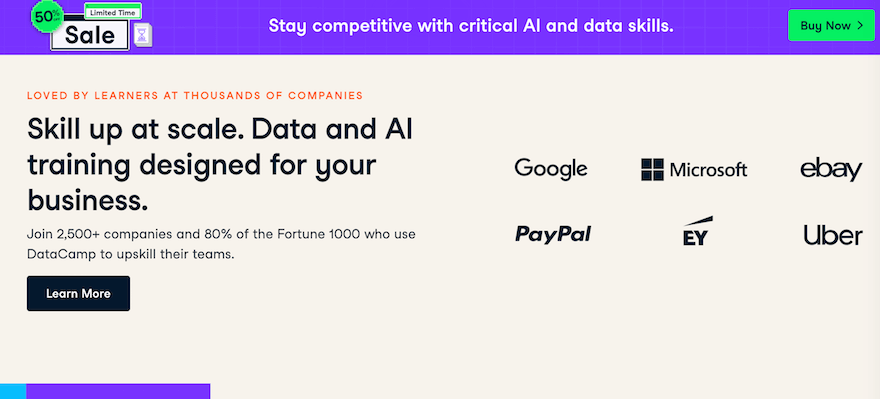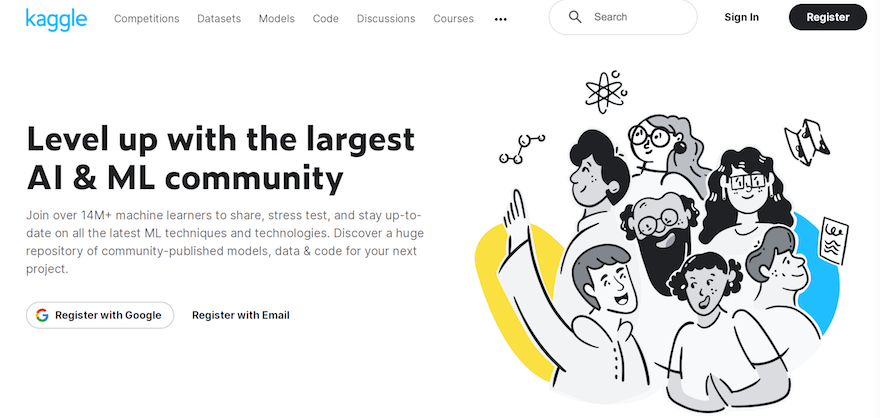Best 6 Digital Skills to Learn at Home: Master the Future
If you click to purchase a product or service based on our independent recommendations and impartial reviews, we may receive a commission. Learn more
Got some spare time on your hands? Between jobs, or simply looking for a new skill to help you achieve your online goals, whether for your website or brand?
Well, good news – there’s no shortage of online marketing courses you can take to improve your skillset and use to beat your competition. Whether it’s getting to grips with SEO and coding, learning how to design and write like a pro, or building your own website, these virtual skills serve as more than just a distraction. They’ll enhance your resume, set you up to start your own side hustle – and, of course, are plenty of fun to learn, too!
In that spirit, we’ve identified six digital skills you can learn right now:
Top Tech Skills to Learn
- Design – how to create stunning visual work.
- Copywriting – how to maximize the impact of your words.
- SEO – how to optimize a website to rank in search engine results.
- Coding – how to learn the basics without a computer science degree.
- Data analysis and visualization – how to dig deep into the data and demonstrate your findings to others.
- Artificial intelligence and machine learning – how to adopt AI to automate and optimize the way you work.
The internet is full of resources on all of these topics, but we’ve done the research and separated the good from the bad. And most importantly, we’ve found the best free resources for digitally upskilling. Let’s take a look!
1. Design
First impressions of a website are 94% design related, and nearly half of all users cite website design as the number one factor that shapes their opinion of a business. Clearly, design is a lucrative skill that’s not going anywhere – and this is a perfect opportunity to enhance your knowledge of it.
You’ve heard of design giants like Photoshop and InDesign, and you might have had some experience with these platforms in the past. But did you know that the internet is actually crawling with free design resources you can use to get informed, get inspired, and even teach yourself new skills?
We asked designers for the best free materials they plan to take advantage of while stuck at home – and received a treasure trove of virtual learning opportunities in response.
The American Institute of Graphic Arts has curated a list of 16 free ebooks for designers that you can read in your own time, on your own computer. The books on offer cover everything from introductory logo design, to typography, to simple inspiration. And since they’re free, you don’t have to face that classic bookstore decision of which to purchase – this knowledge is priceless!
More of a hands-on learner? That works, too. The online academy DesignDesign.Space is offering free digital workshops in response to coronavirus lockdowns worldwide. Multiple dates are scheduled throughout the coming months, and you can book yourself a place for courses on typography, sketching techniques, and even improving your current workspace.

If, after all of this newfound study time, you’re excited to put your design knowledge into practice, then we’ve found a great way to do so. InVision, a digital product design platform based in New York, is offering free resource kits full of reusable icons and templates that you can use to revamp your own design projects.
2. Copywriting
Copywriting may not have been high up on your list of tech skills to learn. But every good website requires great copy, so whether you’re starting (or sprucing up) a personal portfolio, a business website, or an ecommerce store, it’ll be worthwhile to improve your writing. Not only that, but you can pick up some new tips about writing for the web in particular.
There are some excellent free resources available online, but first, we’ve identified two simple tips you can implement right away to create better web copy:
- Pay attention to headlines: 80% of website visitors read your headlines – even though only 20% read the rest of the page. For this reason, you’ll want your headlines to speak to the page-skimmers and dedicated readers alike. You can do this by ensuring that your headlines, when read in order, create an accurate and interesting summary of the rest of the content on a page. Try to keep them short, specific, and explanatory!
- Pay even more attention to CTAs: Personalized calls to action, or CTAs, convert 42% more visitors than untargeted CTAs. CTAs usually take the form of buttons on a website that link to a product page, a form, or additional information. They usually exclaim things like “Buy Now!” or “Find Out More.” CTAs don’t just apply to ecommerce sites – any type of website needs its users to take direct action. You can add some personalization to your CTAs by making them page-specific – in other words, why say “Read More”, when you could say “Read more about [insert topic here]”?
Now, let’s talk about some of the best digital upskilling resources available for budding copywriters.
ConversionXL’s Quick Course on Effective Website Copywriting is a virtual crash course on everything from conducting research to boosting conversions. Read this, and take notes – it’s as good as an in-person class! And once you’ve “graduated,” you can make use of KlientBoost’s Landing Page Copywriting Blueprint. It’s essentially a framework you can lean on to create great copy for a website landing page.
Not quite ready to dive into an online course, but want more copywriting tips – and the latest advice around the best copywriting techniques for conversions? Explore our detailed, dedicated guides for more!
3. SEO
At this point, you know about the design and copywriting basics that create a strong online presence. But what about promoting that online presence? Search Engine Optimization, or SEO, is one of the most important digital skills you can learn to help drive traffic to a webpage.
SEO is the process of increasing a website’s rankings in Search Engine Results Pages (or SERPs). And a good ranking is invaluable: 67% of all clicks go to the first five organic results on the SERP.
Check out these findings from Advanced Web Rankings, where CTR means click through rate, and Exact Position refers to each website’s ranking on a SERP:

Learning basic SEO can help you promote anything from a website to a single blog post, and it’s also an increasingly practical skill to develop as more and more work becomes primarily digital. Luckily, there is a wealth of free resources online to help you get started. Here are some of our favorites:
- Software company Moz offers a comprehensive Beginner’s Guide to SEO, complete with seven chapters and a glossary, catered to rookies and covering everything from keywords to link building.
- Moz’s Whiteboard Fridays video series will help you stay informed about new developments and theories in the world of SEO.
- Studying Google’s SEO Starter Guide is a great way to learn about SEO from the most popular search engine out there.
- The popular SEO company Yoast offers a free version of its SEO training, which covers what exactly Google’s role is, plus tips for “quick wins” to boost your site’s ranking. There’s more knowledge offered on the paid version of Yoast’s course, but we think the free version is useful in its own right.
That said, it’s worth reading up on all the SEO basics to develop an initial understanding of search engines and how to optimize your content for them – before plunging into one of the above courses. In that vein, we recommend diving into one or more of our SEO-focused articles right here on Website Builder Expert:
- SEO Basics 101: a complete beginner’s guide to ranking well.
- Blog SEO Tips: 11 actionable tips for optimizing your content for search engines.
- SEO Mistakes to Sidestep: the 15 most common SEO mistakes to avoid – at all costs!
- Video Optimization Guide: how to set your website’s videos up for success in search engine rankings.
- SEO Checklist: tick off your SEO goals one by one, with us.
- SEO URLs: the ultimate guide to creating SEO-friendly URLs for your website.
- Local SEO: what it is, why it’s important – and how to use it to boost your business’s presence in nearby searches.
4. Coding
We know, we know – coding seems like the kind of skill that definitely requires some painstaking labor or a university degree. And you definitely don’t need to know any code to create your own website.
But no one needs to worry about becoming a self-taught expert – instead, we’re talking about the various free opportunities to get acquainted with code. A little bit of familiarity will allow you to add more customization to your website. Plus, you can become a resource to help other people in a similar situation.
So, where to start? We’ve gathered up the best free resources to help coding novices get a jump start:
- The Odin Project allows complete web development beginners to become programming experts. If the thought of becoming an expert scares you, don’t worry – you can learn as much or as little as you choose! The full scope of this project is broken down into digestible modules. For example, the Web Development 101 course will help you explore languages like HTML and CSS, which will come in handy if all you want to do is revamp your own website.
- Codecademy is an interactive platform that offers classes in 12 different programming languages. With Codecademy, you won’t just be taking notes – you’ll be practicing your technical skills!

Using a website builder is a great opportunity to test your growing comfort level with coding. Because you don’t need to know any code to use a website builder, you can build a practice website before you start learning, and then gradually start tinkering with the code as you go. We’ve already ranked the top 10 best website builders, all but one of which offer free trials or free plans – you can start practicing whenever you want!
We’ve also put together a full list of the 10 Best Online Coding Courses, whether you’re kickstarting a career or just looking to learn some fun new skills!
5. Data Analysis and Visualization
In today’s world, information is everywhere. And all businesses, to some degree or another, rely on data-driven decision-making.
What you need to be able to do? Interpret that data, understand what it means, and present it – in a way that’s accessible, actionable, and engaging – visually to an audience of key stakeholders. You’ll need to be able to collect, clean, and interpret data to extract meaningful patterns and trends – then communicate these complex findings effectively to enable better, data-driven decision making. (Often to non-technical audiences.)
The big question, then. Where can you go to pick up these skills, which are so vital in a modern context – and in the increasingly competitive job market?
- Coursera: offers a range of data analysis and visualization courses from top universities and institutions.
- Udemy: provides comprehensive courses on data analysis, data visualization, and tools like Tableau and Power BI.
- DataCamp: specializes in data-related courses, including data analysis, visualization, and programming in R and Python.
- Tableau eLearning: Tableau, a popular data visualization tool, offers its own set of training resources to upskill individuals and teams.
- edX: provides courses from renowned universities on data analysis, visualization, and statistics.
- YouTube: yep! YouTube is actually a goldmine of free tutorials and channels dedicated to data analysis and visualization skills.

6. Artificial Intelligence and Machine Learning
Artificial intelligence (AI) and machine learning are technologies transforming industries – reshaping the way companies operate and plan for the future.
Seemingly every day, AI changes the way different industries – from healthcare and finance to marketing and manufacturing – go about their business. That could be enhancing customer experiences, optimizing supply chains, detecting fraud, or improving medical diagnoses – at this stage, the opportunities look limitless!
It begs the question – what does that mean for your career path?
Well, as organizations continue to recognize the competitive edge AI provides, the demand for skilled professionals is only going one way – up. So how, and where, can you upskill in AI and machine learning – to ensure your career follows the same trajectory?
Check out the following courses and websites to learn the ropes of AI:
- Udacity: provides specialized nanodegree programs – designed in collaboration with industry giants – in AI, machine learning, and robotics.
- Fast.ai: offers practical and cutting-edge courses on machine learning, with an emphasis on real-world applications.
- TensorFlow: provides tutorials and documentation for learning TensorFlow, an open-source AI framework.
- Kaggle: a platform enabling you to take part in AI competitions, collaborate on projects with like-minded machine learning enthusiasts, and access datasets for practical learning.
Where can upskilling in the exciting, emerging fields of machine learning and AI get you? Here, the sky really is the limit. You could become an AI engineer, a machine learning researcher, a data scientist, or an AI consultant: all are in high demand.
Plus, as industries like autonomous vehicles, natural language processing, and robotics continue to expand, AI and machine learning skills offer thrilling opportunities to shape the future. Not only of your career – but of the world!

Digital Upskilling: The Wrap-Up
In the age of the internet, it’s never been easier to set yourself apart from the competition by learning something new. To recap, these are our top six tech skills to explore:
Best Digital Skills to Learn at Home
- Design
- Copywriting
- SEO
- Coding
- Data analysis and visualization
- Artificial intelligence and machine learning
With plenty of free resources and abundant time, you’ve got nothing to lose – and you might gain a new hobby or business idea!

2 comments